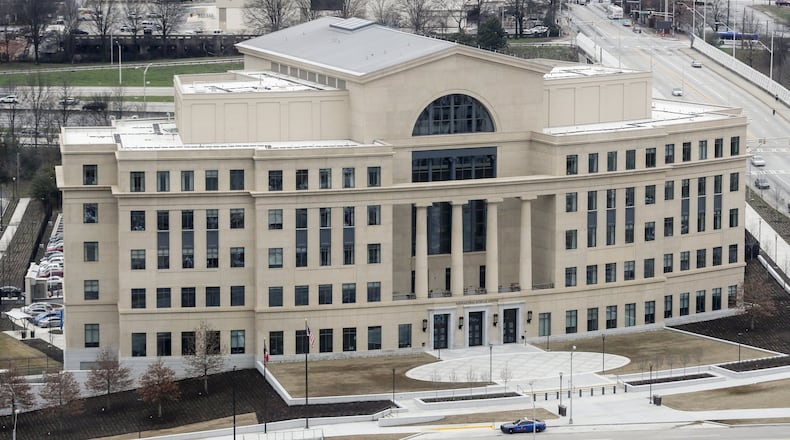A trial judge can impose a life sentence without the possibility of parole against juvenile offenders, the Georgia Supreme Court ruled Monday.
In a unanimous opinion, the state high court rejected arguments that a decision for such an extreme sentence should instead be made by a jury.
The ruling upholds the life-without-parole sentence for Dantazias Raines, who was convicted of the Dec. 21, 2011, murder of taxicab driver Brandy Guined in Upson County. Raines fatally shot Guined during an attempted armed robbery, prosecutors said.
In 2005, the U.S. Supreme Court banned the execution of juvenile defendants who committed their crimes at age 17 and under, noting that teenagers' brains are not yet fully developed. Seven years later, the high court banned mandatory life-without-parole sentences for juveniles.
In 2016, the Georgia Supreme Court ruled that juveniles could receive life without parole sentences in “exceptionally rare” cases if they were found to be “irreparably corrupt” or “permanently incorrigible.”
The decision, written by Justice Sarah Warren, said a life-without-parole sentence is allowed under state law and does not constitute a sentence enhancement when applied to juveniles. For those reasons, it does not require a jury to make specific findings to justice its imposition, the ruling said.
The General Assembly could change the law to make that a prerequisite, but it has not chosen to do so, Warren wrote.
Raines’ lawyers, Mark Loudon-Brown and Atteeyah Hollie from the Southern Center for Human Rights, expressed disappointment with the ruling.
“We believe that no child is so far beyond redemption to be sentenced to death in prison,” they said in a statement. “But as long as Georgia continues to do so, it is imperative that every safeguard is in place to give children a chance at fair treatment. This includes the right to a jury to decide whether to send a child to prison to die.”
About the Author
Keep Reading
The Latest
Featured




